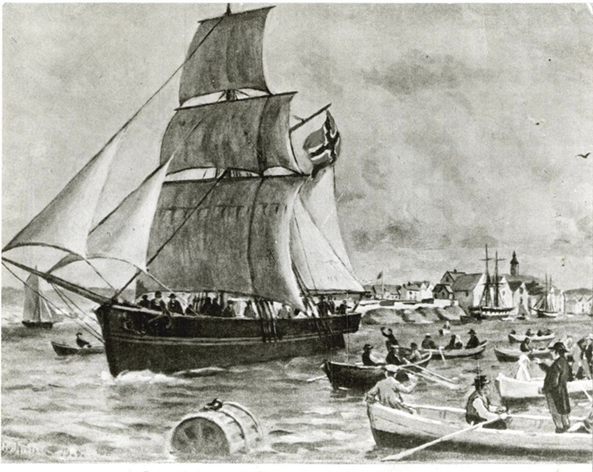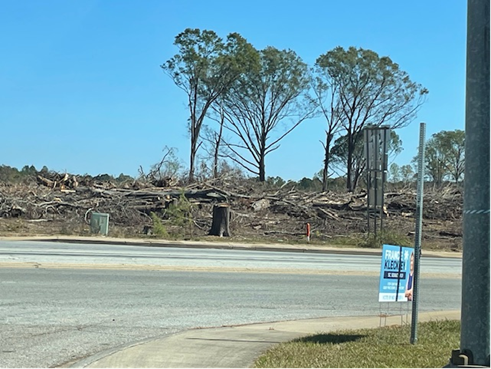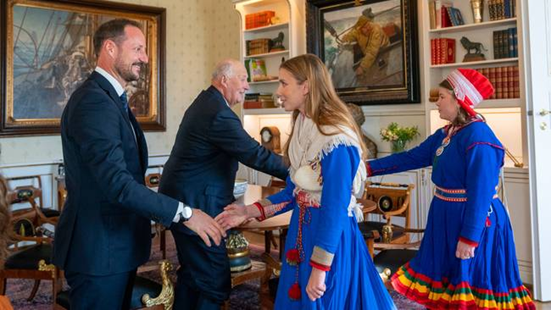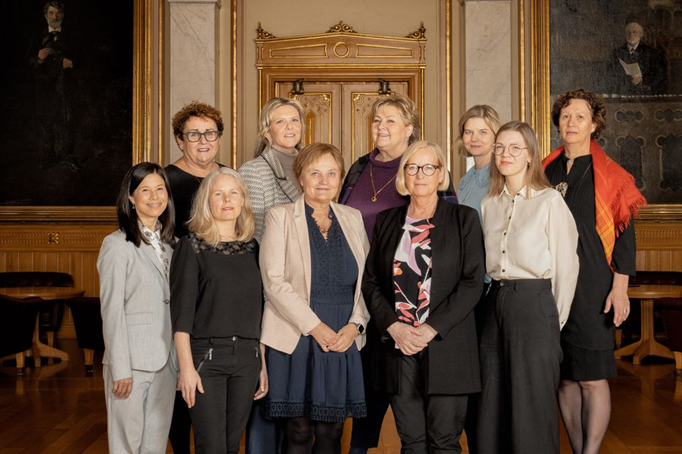









Just before Christmas, I was diagnosed with cancer. When you receive a diagnosis of a serious health issue, your priorities change. Having time to think over Christmas and going into the new year, I decided to make Hope my theme for the new year -- hope for my personal life, hope for our community, and hope in the world. Without hope in my life, I would probably not be writing to you today. In this life, there is no escaping heartache. Sorrow is a natural emotion, and the tears that go with sorrow can be healthy. Hope allows us to feel the pain and then work toward healing. It keeps us from staying stuck in sorrow or the pit of despair which is neither healthy nor natural. Sharing with you what I am concerned about gives me hope. If you share your concerns with your friends, it can give you hope as well.

To me, hope means setting personal expectations and desires for the year, the hope of sharing more love among people and always hoping for better decisions from world leaders. If you have read some of my articles of past years, you might remember I have often focused on democracy, climate -- including caring for the oceans -- and politics. I hope this year will bring us leaders who dare and individuals with courage. For too long we have listened to lots of big talk but seen very little action in all key areas. It is easy to become discouraged. A January 23, 2024 article composed by various Boston University staff members said it well, “Sometimes it feels like the world is one long, sad trombone sound—wah-wah-wah-wah. The planet’s melting. Democracy’s dying. Our mental health is worsening. The Middle East is at war. AI is going to take all our jobs. Education’s deteriorating. Healthcare’s a fortune. Journalism doesn’t matter anymore. Inflation, inflation, inflation. Oh yeah, and the T (local metro) is down—again!” Although that last item is a concern particular to Bostonians, we can all certainly relate to the other dire predictions and get mired down in pessimism. Thanks to the help of a range of faculty experts from across Boston University, we now have all sorts of reasons to feel optimistic about 2024 and beyond.
Let’s talk about climate first where we have experts, nations and leaders setting goals with very little positive solutions to follow. The BU article agrees “There are lots of reasons to be pessimistic about climate change: the slow pace of policy change at the national and international levels, resistance and challenges around phasing out fossil fuel use, the very real existential threats to life and the natural world from storms, sea level rise, and droughts.” But staff member Jessica Colarossi quoted Pamela Templer, a College of Arts & Sciences professor and chair of biology who studies the effects of climate change, who sees reasons to be optimistic that the worst can still be avoided. “I see students taking action all the time. They recognize that climate change is already affecting their lives and, if something isn’t done soon to change course, their futures will be widely affected by the negative effects of climate change,” she says. “We can’t ignore their voices—with youth voices, we are more likely to make changes that are effective and will secure their futures.”
My Hope in 2024 is ignited by a growing commitment to environmental conservation and sustainability. Through conservation efforts, renewable energy initiatives and reforestation projects, there is optimism for mitigating climate change and reducing pollution in order to preserve our planet for future generations.
My Hope also thrives in the world’s collective efforts toward social justice and equality. Communities around the world continue to advocate for human rights, diversity, and inclusion, fostering a more equitable society for all. Today’s democracy divides us around the world, and I believe we need to take democracy back to the people. We need to foster respect for democratic values; we can disagree and fight for our beliefs, but we need to agree to common ground. To me, taking democracy back to the people means that the distance between ordinary people and the leadership has become enormous, and we need to close that distance.
The Boston University article concurs that “There are plenty of reasons to be optimistic about democracy this year.” News organizations and political think tanks across the country give the casual observer the impression that “democracy is in a free fall,” says Michael Holm, College of General Studies senior lecturer in social sciences and department chair. Holms believes that the more extreme political fringes—on the left and the right—are getting more airtime than they have in the past. These relatively small groups “can only offer doom and gloom,” he says, though they rarely have the political will to follow through. “I’m optimistic that the system will prevail.” That’s because the “forces of democracy tend to be positive,” Holm says, even if they’re slow-moving or encounter setbacks.
We can also improve democracy by electing new leadership groups. The old-fashioned way is not working. We need more women, and we need “new generation” leaders. I see real hope for democracy in Norway! In 2021, we celebrated the centenary of Karen Platou (Conservative Party) as the first woman to be elected to the Norwegian parliament. The 1921 election was the first Norwegian election with proportional representation which probably helped the chance of a woman being elected. Today, I have the pleasure of sharing a historic picture with you. Since last summer, for the first time in Norway’s history, all the parliamentarian leaders are women. The group marked the occasion of the United Nations International Women’s Day on March 8th by taking a new picture of the 10 leaders. A parliamentarian leader is the highest-ranking member of the different political groups in parliament.
For me, the hope of seeing changes in solving conflicts in the world is based on the fact that we see more female leaders taking on central positions. I have been lucky in my life to chair many leadership teams and serve as a member of many different boards, currently active on ten different boards of directors. When I see women entering the board room, I am confident the board can make better decisions. I am previously a member of a board with only men, and we are not able to take the right actions as we seem to spend more time on internal conflicts than on making the right decisions. I have seen this repeatedly.
Let me make it clear that I don’t recommend filling all board positions with women. I believe we need men as well and think we can still be of use, but I would like to see diversity. We need to see more women entering the rooms where decisions are made on how to address the serious problems of the world.
The Harvard Business Review supports my theory. “Recently updated research shows that women in leadership positions are perceived as being every bit as effective as men. In an analysis of thousands of 360-degree assessments, women were rated as excelling in taking initiative, acting with resilience, practicing self-development, driving for results, and displaying high integrity and honesty. In fact, they were thought to be more effective in 84% of the competencies that we most frequently measure. Men were rated as being better on two capabilities: “develops strategic perspective” and “technical or professional expertise.”
A 2023 article by Amy Novotney for the American Psychological Association stated that women leaders help increase productivity, enhance collaboration, inspire organizational dedication, and improve fairness. The mere presence of a female leader relative to a male leader led perceivers to anticipate fairer treatment in that organization and greater projected salary and status, according to a 2022 study led by social psychologist Mansi P. Joshi, PhD. Female leaders cued organizational trust in both male- and female-dominated industries and when they occupied different levels of the organizational hierarchy.
Women tend to exhibit high levels of empathy and emotional intelligence, enabling them to understand and connect with team members on a deeper level. Women often excel in communication skills, articulating ideas clearly, listening attentively, and fostering open dialogue. Embracing and empowering women in leadership positions also advances gender equality and fosters a more equitable and inclusive society.
As we venture through 2024, hope remains an indispensable beacon guiding humanity through both triumphs and tribulations. Despite the challenges we face, from global health crises to socio-political unrest, hope persists as a catalyst for progress and resilience. Hope arises from the relentless pursuit of scientific breakthroughs. Whether it's the development of new medical treatments, renewable energy technologies, or space exploration endeavors, each discovery brings with it the promise of a brighter future.
Let me conclude by sharing some good news about my own situation. I had surgery to remove one of my kidneys just before writing to you this month. The surgery went well, and I feel great and am making small improvements every day. The cancer was confined to the kidney, and my excellent doctors believe they got rid of it all by removing the kidney. They hope I will not need any further cancer treatments, and I hope all tests will confirm this promising thought.
I wish you all a great Spring season full of promising thoughts and hope.




